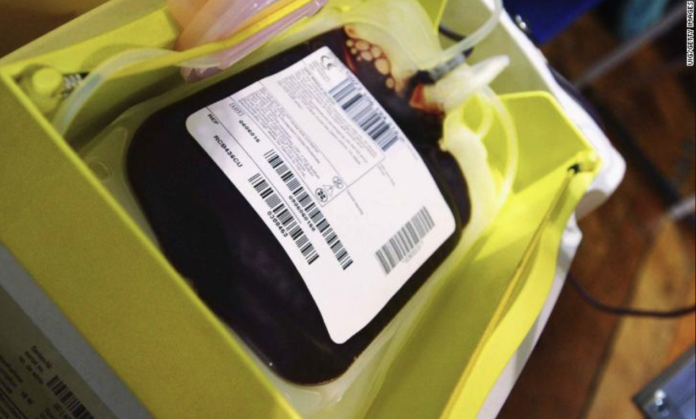
Staff of the St Elizabeth hospital in Hwidiem in the Asutifi South District of the Ahafo Region struggles to keep the minimum unit of blood at the facility’s blood bank.
The situation has been attributed to the public’s lack of interest in voluntarily donating blood.
Felix Gadzeto Fiagbe, a medical laboratory scientist at the St Elizabeth hospital in Hwidiem, said more education on the essence of blood donation would help change the mindset of the people and demystify some of the myths linked to blood donation.
He made the remarks on the sidelines of a Newmont Ghana-sponsored voluntary blood donation exercise, organized by the Ghana Red Cross society at the Hwidiem Presbyterian School, Tuesday.
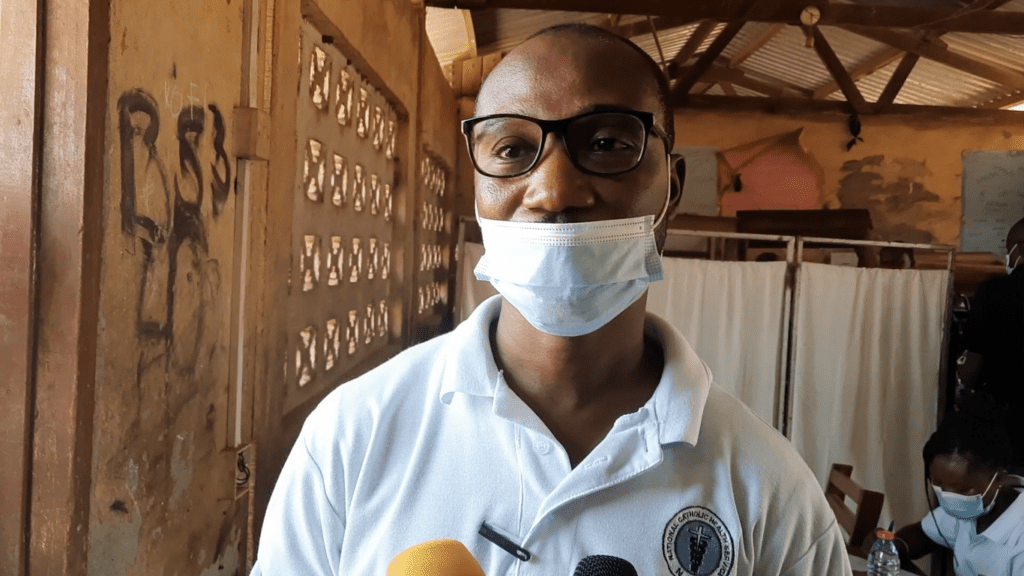
Donors included some members of the general public, Ghana Red Cross Society volunteers, National Service Personnel, and staff of the Ghana Health Service and the National Disaster Management Organization (NADMO) within the Asutifi South District.
Felix Gadzeto Fiagbe said the blood situation at the hospital is not ideal as it becomes difficult for the staff, especially when they have patients who critically need blood.
“Staff of the Lab would have to be calling commercial donors from outside, but sometimes they are unable to donate because of the frequency with which they donate. The blood situation at the hospital is not ideal, not even up to the standard”, he stated.
He, however, said the staff tries all the time to ensure they meet the daily standard of blood that needs to be available at the blood bank. “At least 8 units of blood”, he said.
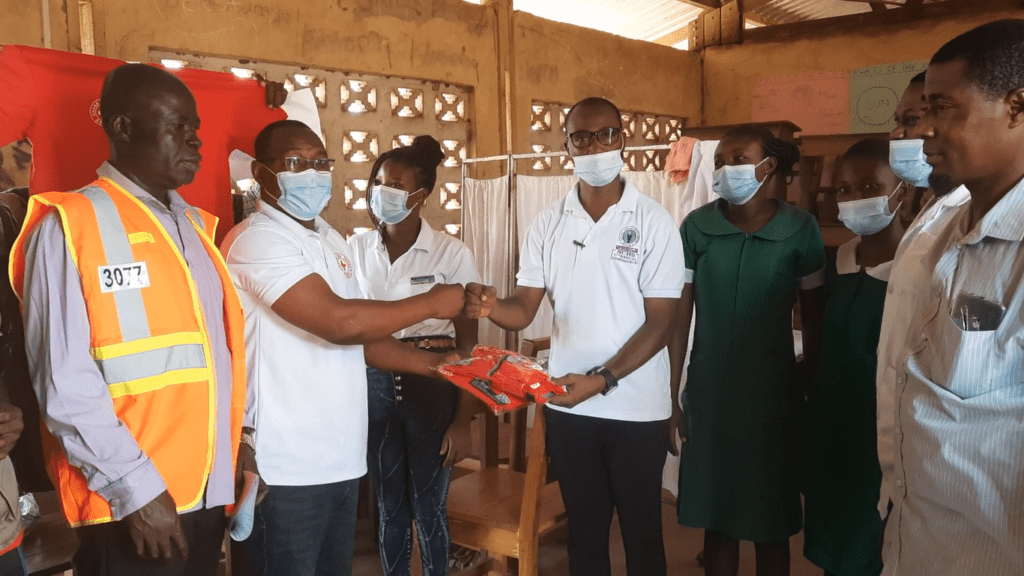
And to ensure voluntary donation, the medical lab scientist said more education is needed.
“Education will change the mindset from how people think that if they donate blood, they will die, among others”, he said.
He urged people to become ambassadors by recruiting people to donate to the blood bank.
It was however encouraging to see many young first-timers and veteran donors taking part in the blood donation exercise.
Issah Omar and Daniel Owusu, both 21 years, were among the many young donors.
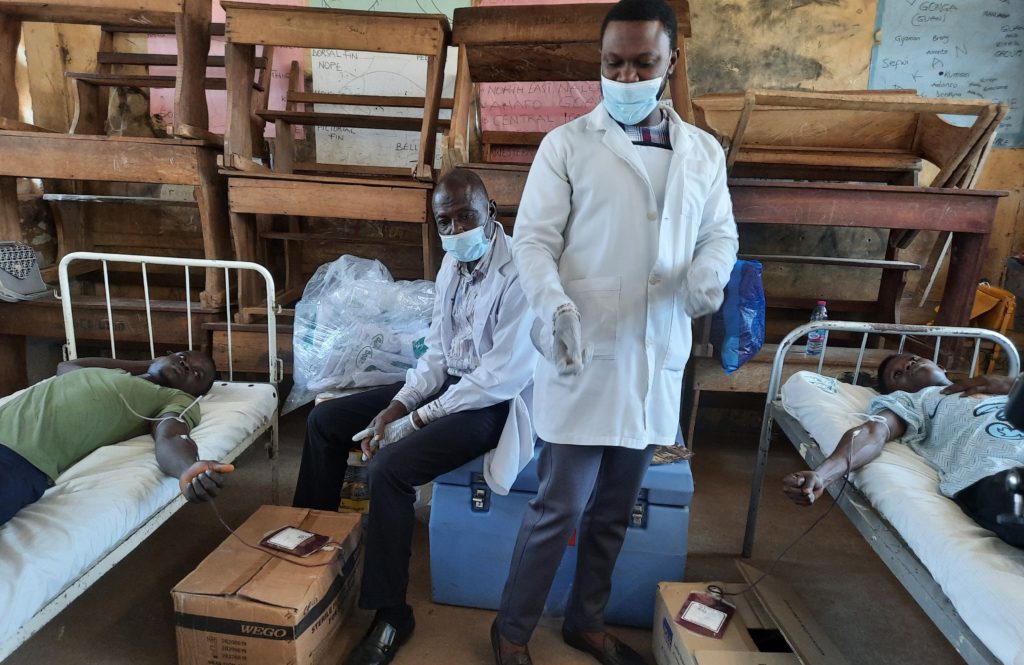
While Owusu, a “pragyia” drive, said his brother urged him to donate to help needy patients, Omar, a mechanic, said he is motivated to help save the lives of accident victims and pregnant women who require blood during labor.
“I will donate again, and I encourage everyone to donate because you don’t know when you would need blood to save your life”, Omar said.
“Blood is not sold at the store. Patients in need of blood can only be saved if we continue to donate. We should not watch on for lives to be lost when we can save them by donating blood today. I would voluntarily donate anytime I am called upon”, Emmanuel Adamtey, a 19-time donor, said.
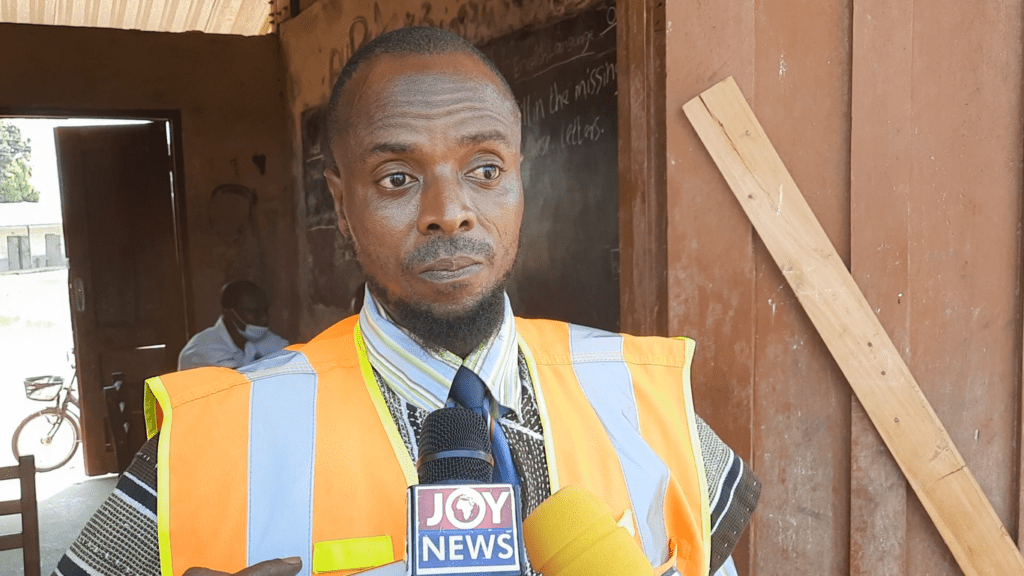
Baba Iddrisu Neindow, the NADMO Administrator for Asutifi South and the Ahafo Regional blood donation organizer for the Ghana Red Cross Society, said lack of sponsorship frustrated their plan to donate blood to health facilities such as the Hwidiem St. Elizabeth hospital, St. Johns of God hospital – Duayaw Nkwanta, Government hospitals at Goaso, and Bechem as part of their medium-term development plan, which expires in December 2021.
But that changed when packages for the donors in the exercise had over ¢14,000 sponsorship support from Newmont Ghana.
He thanked the management of the mining giant for helping them save lives.
Each donor received a Newmont and Red Cross t-shirt, Milk, Malt, Milo, a Ministry of health blood donation certificate, and a Ministry of health Ghana blood donation booklet.
Benedict Odai-Bawuah, a lab technician at St. Elizabeth hospital, said they expect to get a minimum of a hundred units of blood.




